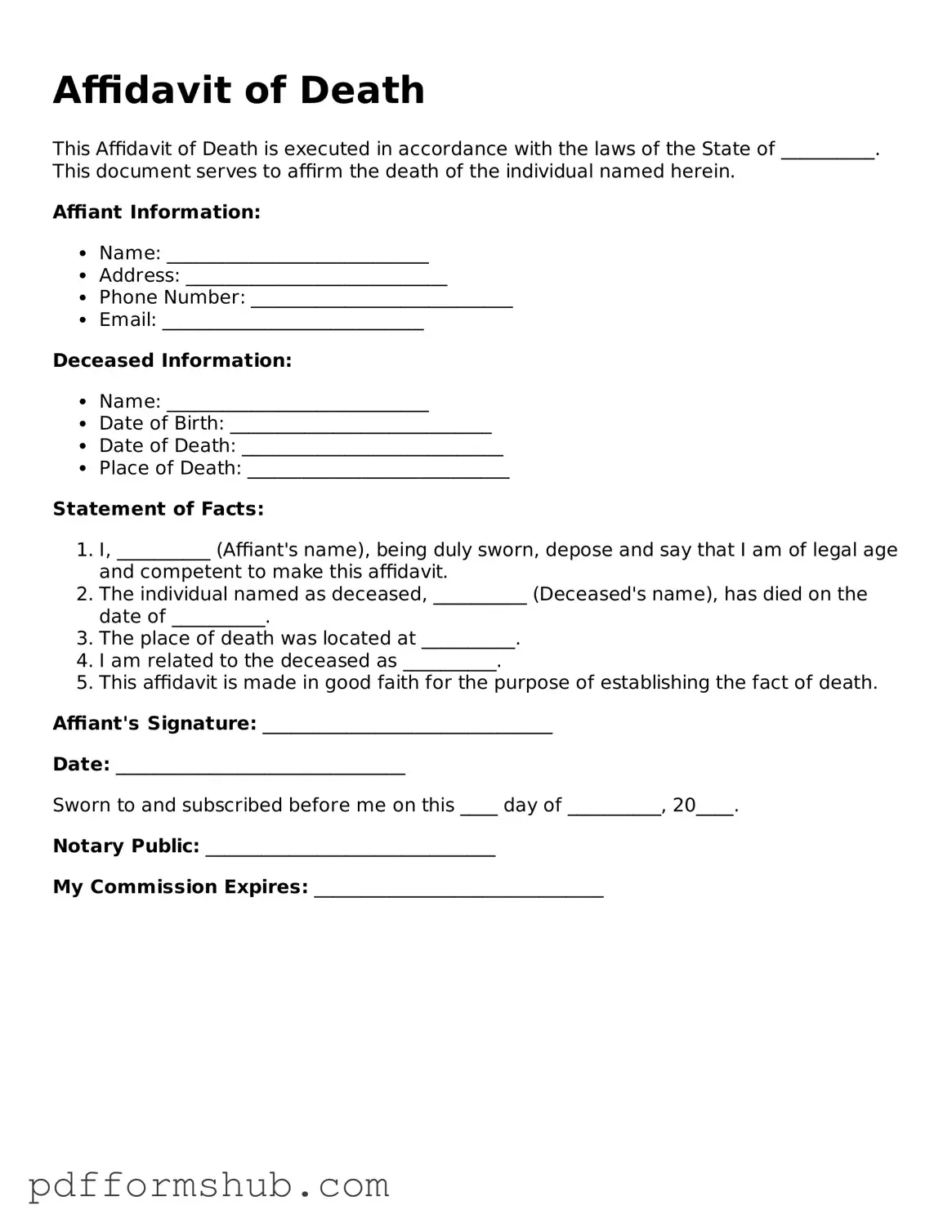Valid Affidavit of Death Form
The Affidavit of Death form is a legal document used to officially declare an individual's death, often required for settling estates or transferring assets. This form serves as a sworn statement, providing necessary details about the deceased and confirming their passing. Understanding how to complete this form is essential for those managing the affairs of a loved one who has died.
To fill out the Affidavit of Death form, click the button below.
Customize Form

Valid Affidavit of Death Form
Customize Form

Customize Form
or
Free PDF Form
Short deadline? Complete this form now
Complete Affidavit of Death online without printing hassles.